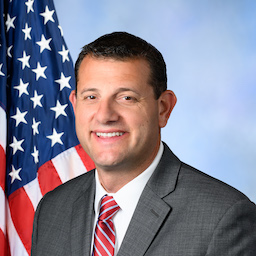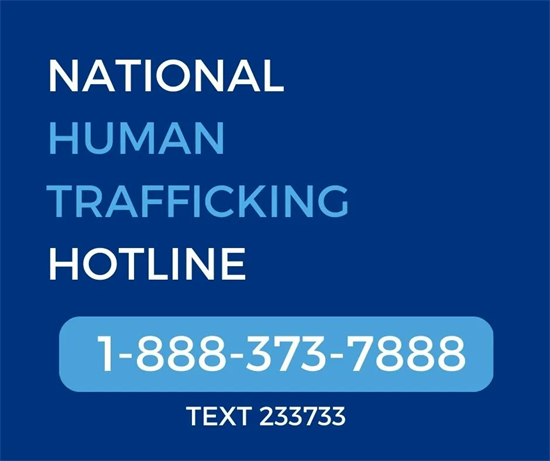- Home
- About
-
Services
- Art Competition
- Community Project Funding Map
- Congressional App Contest
- Congressional Certificate
- Event Request
- Flag Request
- Grants
- Grant Letters of Support
- Help with a Federal Agency
- Inauguration
- Internships
- Kids Page
- Meeting Request
- Service Academy Nominations
- Tour Requests
- Vietnam Veteran Commemoration
- Government Shutdown FAQ
- Issues
- Media
- Contact

In the News
We must work together to combat disturbing crime of human traffickingBakersfield Californian Op-Ed
Washington,
January 13, 2024
California has the highest number of reported human trafficking cases of any state in the country. Sadly, the Central Valley is no stranger to this epidemic. Bakersfield and other towns in the Central Valley sit between some of the largest hubs for human trafficking in the nation — Sacramento, San Francisco and Los Angeles. This international crime is having a direct impact right in our own backyard.
Read the Op-Ed in the Bakersfield Californian
California has the highest number of reported human trafficking cases of any state in the country. Sadly, the Central Valley is no stranger to this epidemic. Bakersfield and other towns in the Central Valley sit between some of the largest hubs for human trafficking in the nation — Sacramento, San Francisco and Los Angeles. This international crime is having a direct impact right in our own backyard. Our proximity to the southern border, large immigrant population, and robust economy with many labor-intensive jobs all make California a top target for human trafficking in the U.S. According to the Department of Homeland Security, human traffickers around the world profit roughly $150 billion per year from this growing criminal enterprise. This crime often crosses both state lines and international borders, and there’s no silver bullet fix to put an end to this transnational crime impacting our communities here in the valley. While there’s not one simple solution to end human trafficking, there are actions we can take to combat this epidemic. Providing human trafficking training and resources to our law enforcement, supporting grants for organizations dedicated to helping victims, and securing the southern border are all actions we must take to combat this crisis. Close coordination between federal, state and local law enforcement is essential to catching and prosecuting human trafficking cases. Our local law enforcement officers are on the frontlines of spotting human trafficking victims, and it’s important that they have the necessary training to be able to recognize key indicators of human trafficking. This year, I secured a $3 million increase for the Federal Law Enforcement Training Center in the FY24 Homeland Appropriations bill for human trafficking awareness training. FLETC travels to requesting local law enforcement agencies and provides training courses to help officers learn how to recognize and respond to instances of human trafficking. Programs like FLETC are critical to equipping our law enforcement with the resources they need to do their jobs. Local nonprofits and victims’ rights organizations play an instrumental role in helping these victims, and we have a lot of organizations here in Kern County that are doing incredible work to support survivors of human trafficking and help them get back on their feet. In order for these organizations to carry out their mission, they often rely on charitable giving as well as support from state and federal grants. Through the appropriations process, I’ve worked with my colleagues in Washington to secure funding increases for several existing federal programs that provide grants to local communities to help victims, including access to healthcare, safe housing and educational opportunities. Last Congress, I was proud to cosponsor and vote in favor of H.R. 6552, the Fredrick Douglas Trafficking Victims Prevention and Protection Reauthorization Act of 2022, which reauthorized federal efforts to combat human trafficking and provide assistance to victims. Human traffickers have also used the chaos at our southern border to their advantage. What we’re seeing at our border is a humanitarian and national security crisis, with more than 1.7 million known evaded apprehensions in the last two years and record amounts of fentanyl harming our communities. The Biden administration has failed to secure the border, and human traffickers are actively exploiting these vulnerabilities. During a Homeland Security Committee Hearing last year on the cost of the border crisis, the committee heard testimony from a human trafficking expert who asserted that “poor U.S. border security and broken U.S. policy are feeding the growth of human trafficking in the United States”. We must take real steps to reform our broken immigration system and secure the border to stop human smuggling across our border. During National Human Trafficking Prevention Month, we all have an opportunity to educate ourselves about the role we can play in preventing and ending human trafficking. As co-chair of the Congressional Human Trafficking Caucus, I’m committed to working with my colleagues in Washington to raise awareness on this crime and ensure federal resources are being leveraged in the best way possible to help catch and prosecute human trafficking cases and provide much needed assistance to victims. It is critical that we continue to work together at the local, state and federal level to bring an end to this growing and disturbing crime. |

